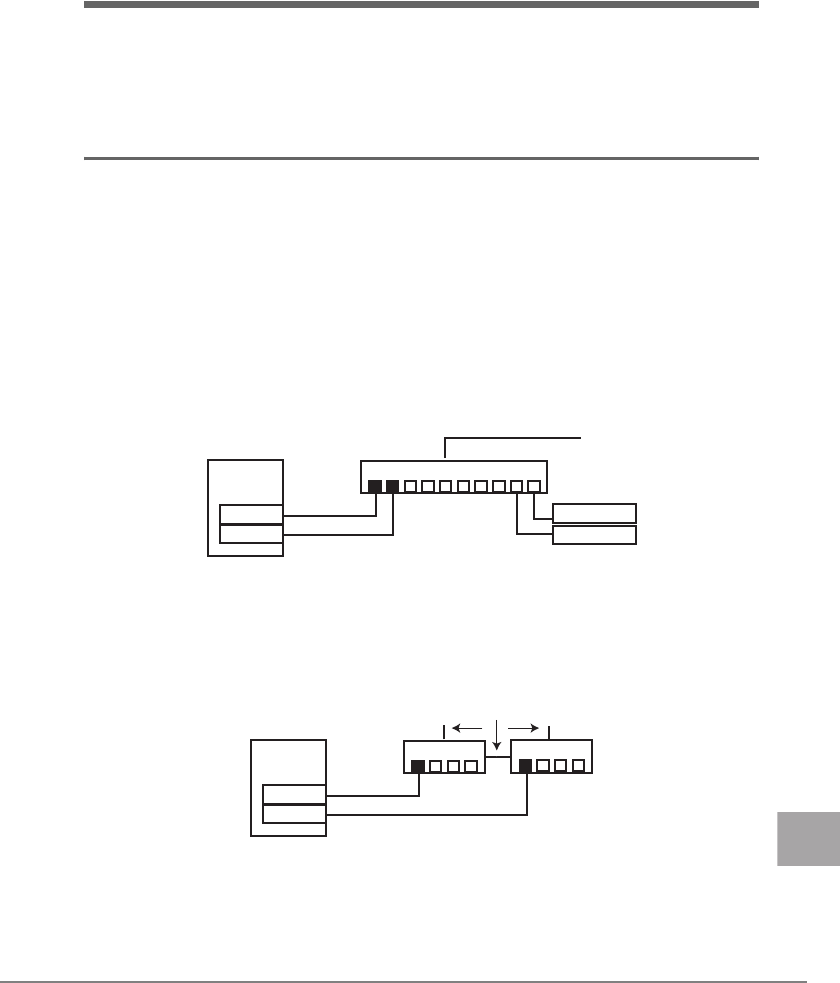
5 Teaming (AFT/ALB/SFT/Static Link Aggregation) 57
E
5
Teaming (AFT/ALB/SFT/Static
Link Aggregation)
This chapter explains Teaming (AFT/ALB/SFT/Static Link Aggregation).
5.1 Teaming (AFT/ALB/SFT/Static Link
Aggregation)
AFT/ALB
Adapter Fault Tolerance (AFT) is a technology of redundant paths between the server and switch
(hub) using multiple LAN ports. If an error occurs in a switch port, cable, or LAN card when the path
is in use (Primary link) (*), the process is automatically switched to another path (Secondary link) so
that the transmission can be continued without disruption.
Adaptive Load Balancing (ALB) is, in addition to the AFT redundant function, a technology to
improve transmission performance to send data from PRIMERGY to two LAN ports (Data reception
is performed only with Primary Link if [Advanced] - [Receive Load Balancing] is set to [Disabled]).
For AFT and ALB, all ports in a team must be connected to the same switch as well. Also, switch
spanning tree function is required to be disabled.
• Configuration of AFT/ALB
SFT
Switch Fault Tolerance (SFT) is a redundant function with a configuration in which each LAN port is
connected to a different switch. The switch can be used in the redundant configuration. When an error
(*) occurs between the LAN port and its connected switch, the path to use is switched. However,
errors between switches (arrows in the following figure) cannot be detected.
• Configuration of SFT
*: Only errors equivalent to link disruption between the LAN port and switch are detected. Therefore,
even if a switch is partly faulty, the path will not be switched as long as the port connected to the
LAN port is normal in the link level.
PRIMERGY
PG-1892
PG-1892
Primary link
Secondary link
Switch
Client
Client
PRIMERGY
PG-1892
PG-1892
Primary link
Secondary link
Switch Switch


















